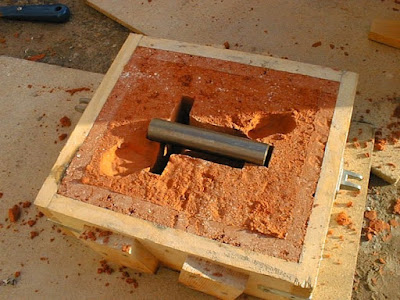Types of Moulding Sand Part-2
Types of Moulding Sand:
5.
Facing Sand:
The face of the mould is made by
facing sand. Facing sand is employed directly next to the surface of the pattern
and it comes in direct contact with the molten metal, when the molten metal is
poured into the mould. It possesses high strength and refractoriness because it
comes in touch with the molten metal. It’s made from clay and silica sand
without addition of any used sand.
Backing sand or flour sand is
employed to copy facing sand. Old and repeatedly used moulding sand is employed
for the backing purpose. It’s also sometimes called black sand due to the
addition of coal dust and burning when it comes in touch with the molten metal.
In mechanical sand preparation
and handling units, facing sand isn't used. The sand which is employed is
cleaned and reactivated by adding of water, binder and special additives. And
therefore the sand we get through this is often called system sand. System sand
is used to fill the entire flask within the mechanical foundries where machine
moulding is employed. The mould made with this sand has high strength,
permeability and refractoriness.
The sand which is employed to
form core is named core sand. It’s also called as oil sand. It’s a mix of
silica sand and core oil. Core oil is mixture of flaxseed oil, resin, light oil
and other binding materials. For the sake of economy, pitch or flours and water
could also be utilized in making of huge cores.







Comments
Post a Comment